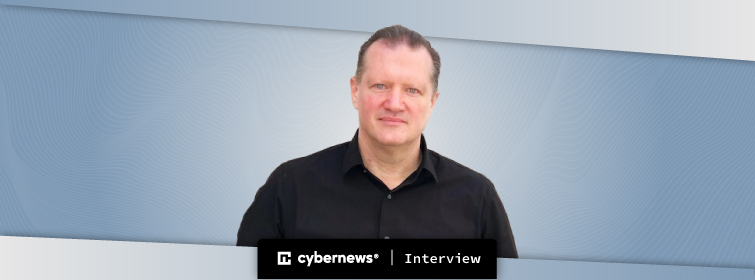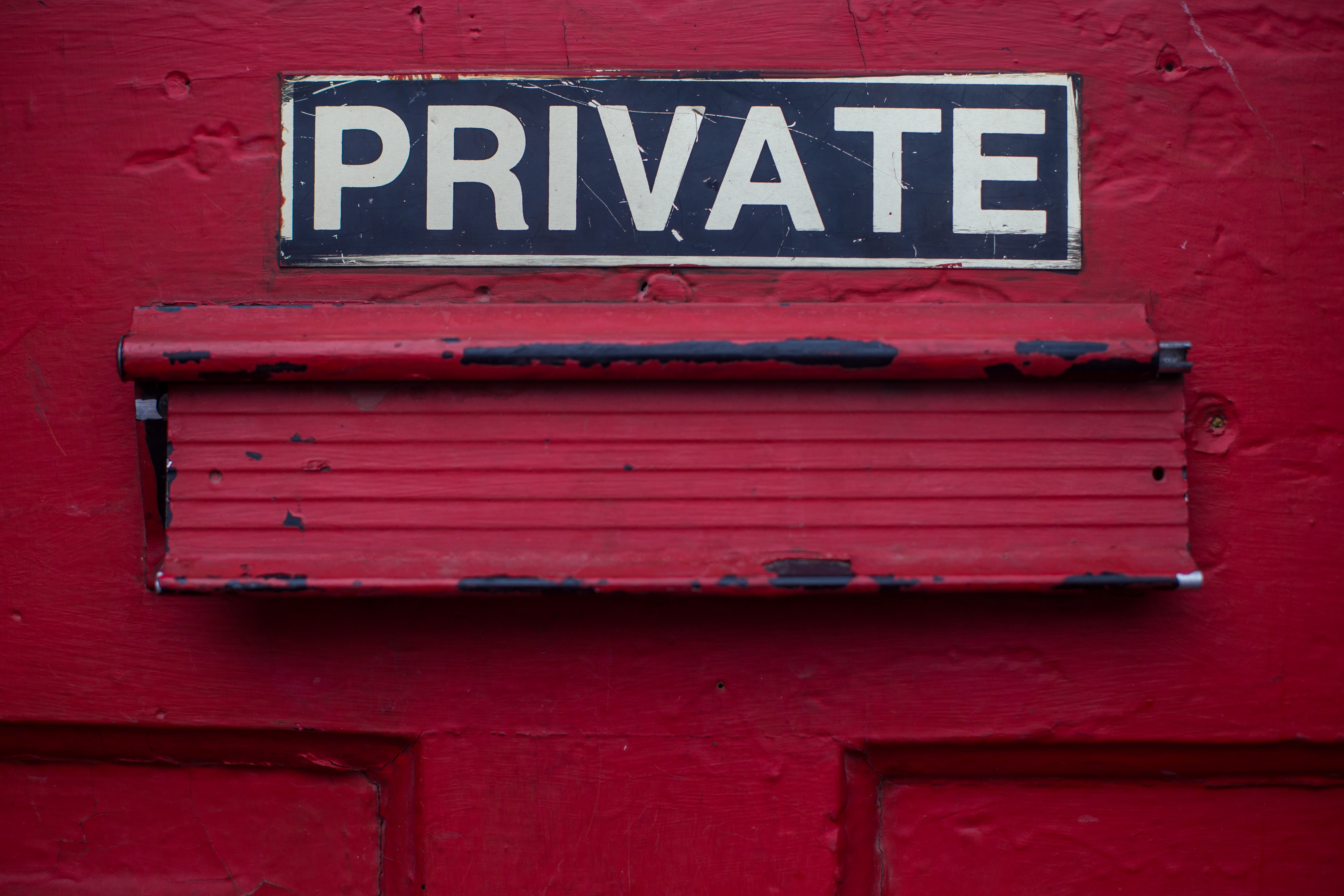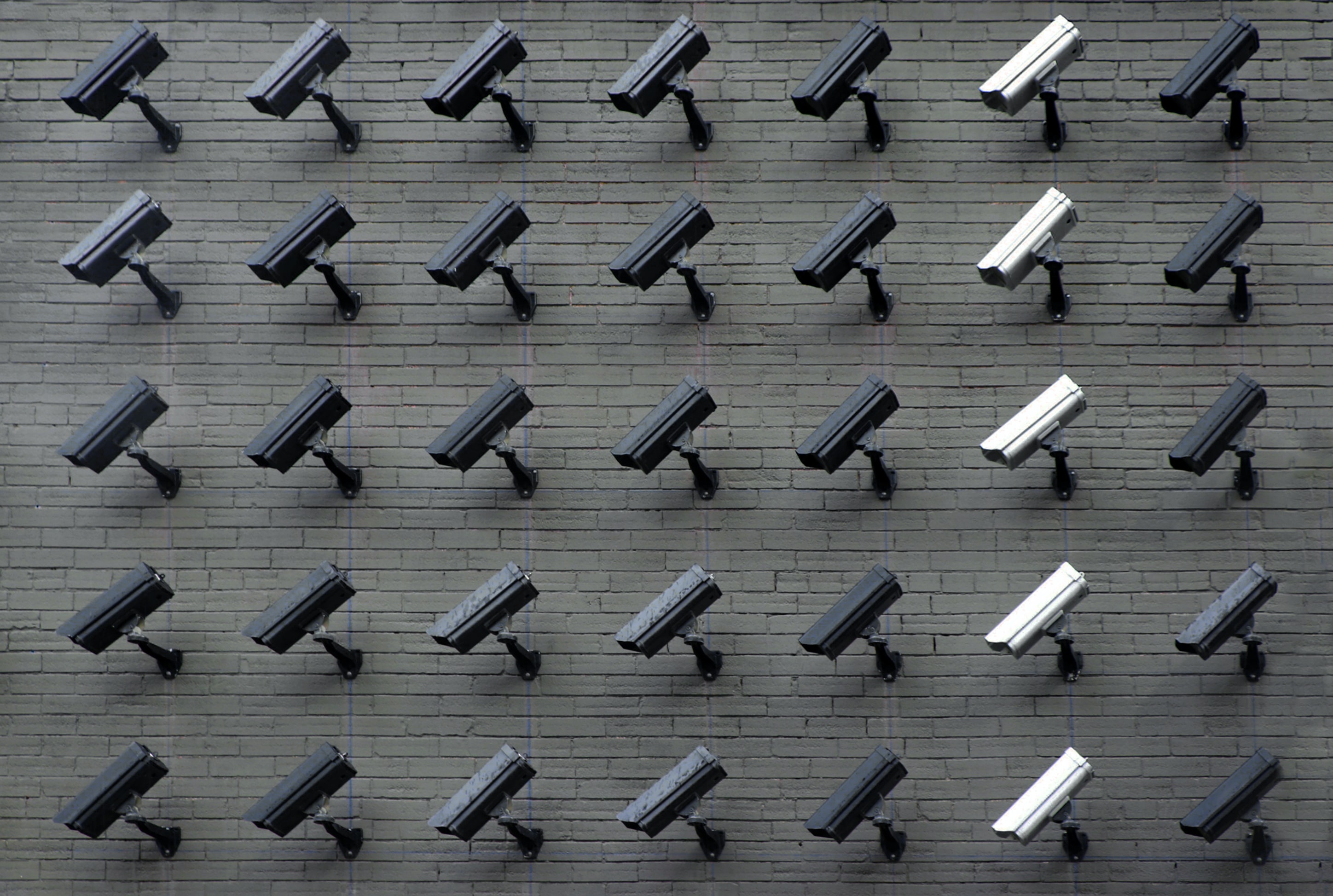
StJohn Deakins, CitizenMe: “Citizens should own their data, control when and how they share it, and see the benefits of doing so”
StJohn Deakins, CitizenMe: “Citizens should own their data, control when and how they share it, and see the benefits of doing so” https://www.citizenme.com/wp-content/uploads/2022/06/Citizenme-interview.jpg 755 280 Georgie Morgan Georgie Morgan https://secure.gravatar.com/avatar/df448d716dcccf5cd59a0459a07ce224?s=96&d=mm&r=gWith the growing amount of personal and highly sensitive information shared online, it’s as important as ever to establish sophisticated protections in place.
One of the most popular tools for online privacy is a VPN. However, it can’t protect you against every form of data collection, urging businesses to adopt ethical practices which allow you to decide how and when your information will be used.
To discuss the issues surrounding data collection and control, as well as the dangers of identity theft online, CyberNews invited StJohn Deakins, the CEO of CitizenMe, which helps citizens regain their digital privacy back.
How did the idea of CitizenMe originate? What has your journey been like so far?
I’ve been creating digital businesses and frontier technology for 20 years. My first company helped over 100 million people get online with their phones. After selling it, I had time to look at what was needed most in our new global digital society. It became very clear that simply having access to the internet is not enough. To unlock the power of the internet for everyday people, we have to give everyone the ability to participate in the governance and the value of the internet. That starts with our data.
Thus, CitizenMe was founded to take on the biggest challenge in the Information Age: helping Digital Citizens gain control of the value of their digital identity and data. We have created the only functioning zero-party data platform on the market. People are empowered to gather their data on their own devices and privately reveal its meaning. They can then share their information with organizations as they choose. Our platform facilitates and empowers the creators and consumers of personal data while relating to us all as equal Citizens.
Can you introduce us to the CitizenMe App? What is Zero Data?
CitizenMe wants to give back control of people’s data to help Citizens build a better digital society for everyone. Ultimately, it’s up to Citizens to decide exactly what that looks like. We believe that a healthy information economy produces sustainable growth and more accurate, more valuable data for businesses. Real people, real data, shared ethically, creates less liability and more opportunity.
We believe that Citizens should own their data, control when and how they share it, and see the benefits of doing so. That could be through personal insight, monetary value, contributing to the causes they care about, and more.
Citizens keep their data on their devices. They share it or choose not to. Just them. No other parties, including CitizenMe, control it. That’s why we call it zero-party data. We also use edge-processing, where data is managed and AI analyzed on the smartphone. We don’t bring it all to a central server or system to analyze – hence it’s a ‘Zero Data’ platform. Everything happens in the app on our phones. We refer to this as the edge of our network (or on-the-edge). This zero data architecture is systemically more secure as only the smartphone owner has access to the Personally Identifiable Information (PII). So we remove the centralized honey-pot of PII that most systems require to run and make it more expensive to hack large volumes of people’s data. In essence, we use economics to promote better system security – making hacking less financially attractive to hackers.
Via our app, Marketplace market, and user research platform, clients have access to a 360º always on proprietary panel community of Citizens. This offers deeper data sets than anywhere else and valuable insights with accurate, ethical data gathered from real engagement with real people. We have over 11 million completed zero-party data exchanges and growing.
In your opinion, what data privacy issues should more people be concerned about?
A recent survey conducted by Data Privacy Manager revealed that up to 80 percent of people are concerned about how brands are using their data. There is a vast amount of data that’s collected by unexpected hidden or third parties of which most people are unaware. This is quite concerning, and it leaves your private data at risk of a data breach. Particularly if your data is being stored in one central place. This study also showed that another 81 percent of other individuals felt as if they had little or no control over the data collected.
We want to shift the emphasis away from your data being stored in one system and not knowing what data is being stored about you. The benefit of being a zero-party data platform is transparency and that you are in control of your data, no one else. By moving the data onto your device, you decide when and who to share your data with and you get something in return. We do this on our platform in three ways. One is personal insights to enable you to learn about yourself. The second is via data donations helping medical research, charities, and causes that Citizen’s care about. Last is monetization via paid surveys with quick payment from PayPal.
How do you think the recent global events affected your field of work?
The Covid-19 pandemic has accelerated the switch to digital as we’re living far more digitally than ever before. A lot of people felt isolated during this time, but then a lot of people turned to or had to turn to digital to stay connected. Digital is much more a part of everyone’s lives now than, say, three years ago. Because of this, companies can’t rely on third parties to always deliver the data they need. So they’re looking to reach out to their customers directly to get this information. This leads to the necessity to obtain data from stakeholders, customers, employees, or patients.
Zero-party data is something that more companies are looking to turn to due to the changing legislation, the death of the cookie from Google, and the removal of tracking, and open rates from Apple. Businesses must turn to zero-party data to collect this information which they can’t otherwise get. But it needs to be done in a consensual and ethical way. We believe that personal information ownership and ethical data use can transform our society for the better. It can create change, inform policy-making, and create better health and life outcomes for all.
What types of threats can arise shortly as digital identity becomes a significant part of our lives?
BOTS and deep-fakes could have the potential to become a threat shortly. They can replicate faces and voices to a convincing level. The challenge companies and organizations face is knowing that the customers are who they say they are. Additionally, how can Citizens be assured that the organizations they are talking to can be trusted? Online scamming has had a steep increase recently with up to two-thirds of UK adults being targeted last year, according to Citizens Advice. As this deep-fake technology is becoming more advanced, it’s something that everyone needs to be aware of going forward.
Deep-fakes become beyond ID theft and fraud. As our world becomes completely digitally enabled, our ability to easily verify our identity becomes central to our ability to interact and engage with many areas of our lives. Be it with the bank, logging into a social networking site, your work email, or applying for a new passport. It’s something that needs to be controlled with new and adapted legislation enforced by governments. Because it can easily get out of control if we’re not careful.
What dangers can customers be exposed to if the software they trust struggles to ensure compliance?
The dangers customers can be exposed to are having their emails hacked and personal data breached via someone hacking the central system it’s stored on. They risk sharing their data with an unknown third party if the software they trust struggles to ensure compliance via dark UX or hidden consent. This means customers are unaware of what they are consenting to share.
Businesses, organizations, and public institutions are all going to have to change the way they use and handle data soon. Stricter legislation is coming from governments in Europe and the United States. Tech giants like Google and Apple are ditching cookies and rethinking data tracking – it’s far from business as usual, and we need to adapt.
And that’s a good thing! A possibly great thing! Not only for Citizens but for businesses and organizations ready to step into the future of more ethical data. It’s not just a necessity for forward-thinking enterprises but an opportunity.
What are some of the worst mistakes companies tend to make when it comes to handling large amounts of personal data?
Some of the worst mistakes companies tend to make when it comes to handling large amounts of personal data is that they store it all in one place. The architectural mistake of holding large amounts of PII (Personally Identifiable Information) in the core is high risk and low compliance as it makes them vulnerable to hacks.
This is the current problem, but there is a future problem, too, and that’s a lack of future-proofing for impending EU legislation. Google is ending cookies, and Apple is moving the data ecosystem to permission-based data, which creates a problem for those companies relying on Google Analytics and cookie software to get data from their customers.
For example, look at Equifax’s data breach. In 2017 Equifax, an American credit bureau, experienced a data breach where the private records of 147.9 million Americans, 15.2 million British Citizens, and 19.000 Canadian citizens were compromised. It was one of the largest cybercrimes related to identity theft. As their records were all on the same system, it made them vulnerable to data breaches.
A solution to combat this is to use zero-party data and on-the-edge processing. This means the data stays on each individual’s smartphone, not on one system. This makes it harder for hackers to target, as each individual’s data would be on their phone wherever they are. No one else has access to it, and it’s spread across millions of separate devices.
Talking about individuals, what actions should average Internet users take to protect their data online?
You’re able to take smaller steps. Such as setting up two-factor identification to sign in and changing your password regularly can help. Declining or rejecting cookies or using an ad blocker can also help somewhat. But, I think that the best solution is for people to have and hold a copy of all their data across the board. The best and only source of full 360º life data about an individual should be from the individual. This is both powerful in terms of personal control and transparency, but it’s also incredibly valuable when combined and aggregated with other individuals’ data too. You can do this by using zero-party data as there’s no central honeypot that hackers can go after.
Share with us, what’s next for CitizenMe?
This year is an exciting time for us as we are moving to upgrade both our app and market research platform. We are making the transition into a SaaS platform that will help benefit all parties as we focus on the growing UK and U.S. markets next month. We’ve been voted as the UK’s number one innovative MarTech company for 2022 by BusinessCloud, which was great. We’ve also received the MyData Global Operator Award again for 2022 and are in the top 10% of European start-ups rated by Early Metrics.
We plan to bring added gamified life insights, personalization, more rewards, and referral perks to Citizens. We have launched our ‘Collectives’ function, which enables Citizens to connect over shared commonalities, be it health, environmental, or neurodiversity, starting with type 1 diabetics. We are a platform where Citizens can come together and share their data with others like them and in turn, understand more about themselves and the world they live in. The sharing of data within Collectives offers exciting opportunities for the advancement of research which would be of huge benefit to both charities and scientists alike.
Book a chat to find out how we can connect you to always on access to 360º life data directly from real, consenting humans.
- Posted In:
- Business blog





